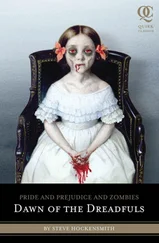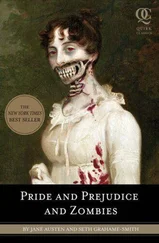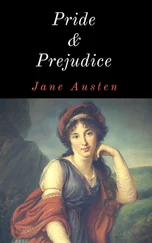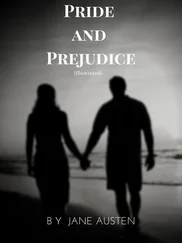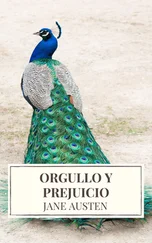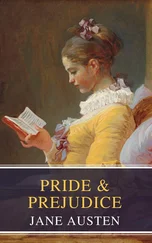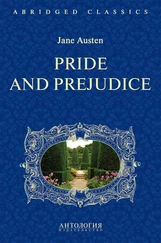Jane Austin - Pride and Prejudice
Здесь есть возможность читать онлайн «Jane Austin - Pride and Prejudice» — ознакомительный отрывок электронной книги совершенно бесплатно, а после прочтения отрывка купить полную версию. В некоторых случаях можно слушать аудио, скачать через торрент в формате fb2 и присутствует краткое содержание. Жанр: unrecognised, на немецком языке. Описание произведения, (предисловие) а так же отзывы посетителей доступны на портале библиотеки ЛибКат.
- Название:Pride and Prejudice
- Автор:
- Жанр:
- Год:неизвестен
- ISBN:нет данных
- Рейтинг книги:3 / 5. Голосов: 1
-
Избранное:Добавить в избранное
- Отзывы:
-
Ваша оценка:
- 60
- 1
- 2
- 3
- 4
- 5
Pride and Prejudice: краткое содержание, описание и аннотация
Предлагаем к чтению аннотацию, описание, краткое содержание или предисловие (зависит от того, что написал сам автор книги «Pride and Prejudice»). Если вы не нашли необходимую информацию о книге — напишите в комментариях, мы постараемся отыскать её.
Pride and Prejudice — читать онлайн ознакомительный отрывок
Ниже представлен текст книги, разбитый по страницам. Система сохранения места последней прочитанной страницы, позволяет с удобством читать онлайн бесплатно книгу «Pride and Prejudice», без необходимости каждый раз заново искать на чём Вы остановились. Поставьте закладку, и сможете в любой момент перейти на страницу, на которой закончили чтение.
Интервал:
Закладка:
Elizabeth was far from suspecting that she was herself becoming
an object of some interest in the eyes of his friend. Mr. Darcy
had at first scarcely allowed her to be pretty; he had looked at
her without admiration at the ball; and when they next met, he
looked at her only to criticise. But no sooner had he made it
clear to himself and his friends that she hardly had a good
feature in her face, than he began to find it was rendered
uncommonly intelligent by the beautiful expression of her dark
eyes. To this discovery succeeded some others equally mortifying.
Though he had detected with a critical eye more than one failure
of perfect symmetry in her form, he was forced to acknowledge her
figure to be light and pleasing; and in spite of his asserting
that her manners were not those of the fashionable world, he was
caught by their easy playfulness. Of this she was perfectly
unaware; to her he was only the man who made himself agreeable
nowhere, and who had not thought her handsome enough to dance
with.
He began to wish to know more of her, and as a step towards
conversing with her himself, attended to her conversation with
others. His doing so drew her notice. It was at Sir William
Lucas’s, where a large party were assembled.
“What does Mr. Darcy mean,” said she to Charlotte, “by listening
to my conversation with Colonel Forster?”
“That is a question which Mr. Darcy only can answer.”
“But if he does it any more I shall certainly let him know that I
see what he is about. He has a very satirical eye, and if I do
not begin by being impertinent myself, I shall soon grow afraid
of him.”
On his approaching them soon afterwards, though without seeming
to have any intention of speaking, Miss Lucas defied her friend
to mention such a subject to him; which immediately provoking
Elizabeth to do it, she turned to him and said:
“Did you not think, Mr. Darcy, that I expressed myself uncommonly
well just now, when I was teasing Colonel Forster to give us a
ball at Meryton?”
“With great energy; but it is always a subject which makes a lady
energetic.”
“You are severe on us.”
“It will be _her_ turn soon to be teased,” said Miss Lucas. “I am
going to open the instrument, Eliza, and you know what follows.”
“You are a very strange creature by way of a friend!—always
wanting me to play and sing before anybody and everybody! If my
vanity had taken a musical turn, you would have been invaluable;
but as it is, I would really rather not sit down before those who
must be in the habit of hearing the very best performers.” On
Miss Lucas’s persevering, however, she added, “Very well, if it
must be so, it must.” And gravely glancing at Mr. Darcy, “There
is a fine old saying, which everybody here is of course familiar
with: ‘Keep your breath to cool your porridge’; and I shall keep
mine to swell my song.”
Her performance was pleasing, though by no means capital. After a
song or two, and before she could reply to the entreaties of
several that she would sing again, she was eagerly succeeded at
the instrument by her sister Mary, who having, in consequence of
being the only plain one in the family, worked hard for knowledge
and accomplishments, was always impatient for display.
Mary had neither genius nor taste; and though vanity had given
her application, it had given her likewise a pedantic air and
conceited manner, which would have injured a higher degree of
excellence than she had reached. Elizabeth, easy and unaffected,
had been listened to with much more pleasure, though not playing
half so well; and Mary, at the end of a long concerto, was glad
to purchase praise and gratitude by Scotch and Irish airs, at the
request of her younger sisters, who, with some of the Lucases,
and two or three officers, joined eagerly in dancing at one end
of the room.
Mr. Darcy stood near them in silent indignation at such a mode of
passing the evening, to the exclusion of all conversation, and
was too much engrossed by his thoughts to perceive that Sir
William Lucas was his neighbour, till Sir William thus began:
“What a charming amusement for young people this is, Mr. Darcy!
There is nothing like dancing after all. I consider it as one of
the first refinements of polished society.”
“Certainly, sir; and it has the advantage also of being in vogue
amongst the less polished societies of the world. Every savage
can dance.”
Sir William only smiled. “Your friend performs delightfully,” he
continued after a pause, on seeing Bingley join the group; “and I
doubt not that you are an adept in the science yourself, Mr.
Darcy.”
“You saw me dance at Meryton, I believe, sir.”
“Yes, indeed, and received no inconsiderable pleasure from the
sight. Do you often dance at St. James’s?”
“Never, sir.”
“Do you not think it would be a proper compliment to the place?”
“It is a compliment which I never pay to any place if I can avoid
it.”
“You have a house in town, I conclude?”
Mr. Darcy bowed.
“I had once had some thought of fixing in town myself—for I am
fond of superior society; but I did not feel quite certain that
the air of London would agree with Lady Lucas.”
He paused in hopes of an answer; but his companion was not
disposed to make any; and Elizabeth at that instant moving
towards them, he was struck with the action of doing a very
gallant thing, and called out to her:
“My dear Miss Eliza, why are you not dancing? Mr. Darcy, you must
allow me to present this young lady to you as a very desirable
partner. You cannot refuse to dance, I am sure when so much
beauty is before you.” And, taking her hand, he would have given
it to Mr. Darcy who, though extremely surprised, was not
unwilling to receive it, when she instantly drew back, and said
with some discomposure to Sir William:
“Indeed, sir, I have not the least intention of dancing. I
entreat you not to suppose that I moved this way in order to beg
for a partner.”
Mr. Darcy, with grave propriety, requested to be allowed the
honour of her hand, but in vain. Elizabeth was determined; nor
did Sir William at all shake her purpose by his attempt at
persuasion.
“You excel so much in the dance, Miss Eliza, that it is cruel to
deny me the happiness of seeing you; and though this gentleman
dislikes the amusement in general, he can have no objection, I am
sure, to oblige us for one half-hour.”
“Mr. Darcy is all politeness,” said Elizabeth, smiling.
“He is, indeed; but, considering the inducement, my dear Miss
Eliza, we cannot wonder at his complaisance—for who would object
to such a partner?”
Elizabeth looked archly, and turned away. Her resistance had not
injured her with the gentleman, and he was thinking of her with
some complacency, when thus accosted by Miss Bingley:
“I can guess the subject of your reverie.”
“I should imagine not.”
“You are considering how insupportable it would be to pass many
evenings in this manner—in such society; and indeed I am quite of
your opinion. I was never more annoyed! The insipidity, and yet
the noise—the nothingness, and yet the self-importance of all
those people! What would I give to hear your strictures on them!”
“Your conjecture is totally wrong, I assure you. My mind was more
Читать дальшеИнтервал:
Закладка:
Похожие книги на «Pride and Prejudice»
Представляем Вашему вниманию похожие книги на «Pride and Prejudice» списком для выбора. Мы отобрали схожую по названию и смыслу литературу в надежде предоставить читателям больше вариантов отыскать новые, интересные, ещё непрочитанные произведения.
Обсуждение, отзывы о книге «Pride and Prejudice» и просто собственные мнения читателей. Оставьте ваши комментарии, напишите, что Вы думаете о произведении, его смысле или главных героях. Укажите что конкретно понравилось, а что нет, и почему Вы так считаете.


